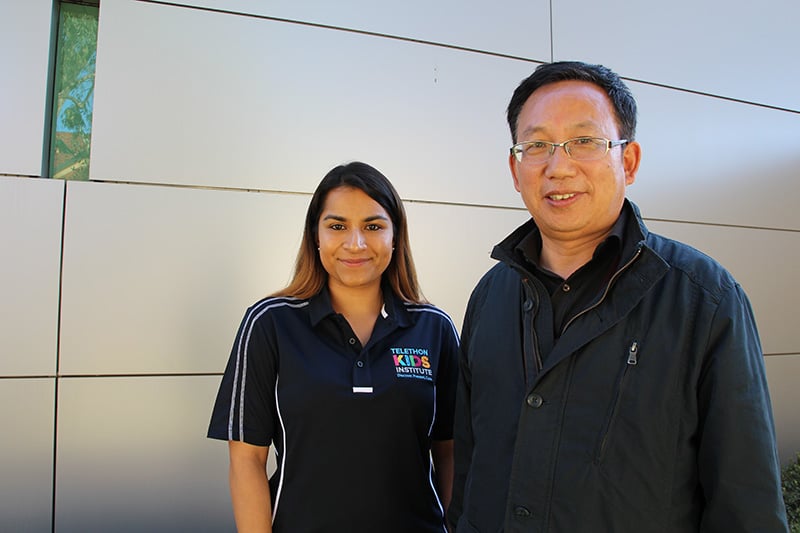Search
Research
IgG Responses to Pneumococcal and Haemophilus Influenzae Protein Antigens Are Not Impaired in Children with a History of Recurrent Acute Otitis MediaVaccines including conserved antigens from Streptococcus pneumoniae & nontypeable Haemophilus influenzae have the potential to reduce of otitis media.
Research
The anti-inflammatory effects of interleukin-4 are not mediated by suppressor of cytokine signalling-1 (SOCS1)While it is known that the anti-inflammatory effects of interleukin (IL)-4 require new protein synthesis, the exact mechanisms by which IL-4 suppresses the prod
Research
Th2-associated immunity to bacteria in asthma in teenagers and susceptibility to asthmaBacterial colonisation of the airways is associated with increased risk of childhood asthma


News & Events
Chinese immigrants in Australia at higher risk of allergies, research showsChinese immigrants who live in a Western environment like Australia have an increased risk of allergies, hay fever and asthma, new research led by Curtin University and The Kids Research Institute Australia has found.
Research
Molecular characterization of Der p 10: A diagnostic marker for broad sensitization in house dust mite allergyTropomyosins represent clinically relevant seafood allergens but the role of mite tropomyosin
Research
CD4 allergen tetramersThe introduction of class II tetramers for identifying antigen-binding CD41 cells has lagged behind the use of class I tetramers because of difficulties...
Research
A platform in the use of medicines to treat chronic hepatitis C (PLATINUM C): protocol for a prospective treatment registry of real-world outcomes for hepatitis CSafe, highly curative, short course, direct acting antiviral (DAA) therapies are now available to treat chronic hepatitis C. DAA therapy is freely available to all adults chronically infected with the hepatitis C virus (HCV) in Australia. If left untreated, hepatitis C may lead to progressive hepatic fibrosis, cirrhosis and hepatocellular carcinoma.
Research
Preparing for Life: Plasma Proteome Changes and Immune System Development During the First Week of Human LifeNeonates have heightened susceptibility to infections. The biological mechanisms are incompletely understood but thought to be related to age-specific adaptations in immunity due to resource constraints during immune system development and growth. We present here an extended analysis of our proteomics study of peripheral blood-plasma from a study of healthy full-term newborns delivered vaginally, collected at the day of birth and on day of life (DOL) 1, 3, or 7, to cover the first week of life. The plasma proteome was characterized by LC-MS using our established 96-well plate format plasma proteomics platform.
Research
Barriers and Considerations for Diagnosing Rare Diseases in Indigenous PopulationsAdvances in omics and specifically genomic technologies are increasingly transforming rare disease diagnosis. However, the benefits of these advances are disproportionately experienced within and between populations, with Indigenous populations frequently experiencing diagnostic and therapeutic inequities. The International Rare Disease Research Consortium (IRDiRC) multi-stakeholder partnership has been advancing toward the vision of all people living with a rare disease receiving an accurate diagnosis, care, and available therapy within 1 year of coming to medical attention. In order to further progress toward this vision, IRDiRC has created a taskforce to explore the access barriers to diagnosis of rare genetic diseases faced by Indigenous peoples, with a view of developing recommendations to overcome them.
